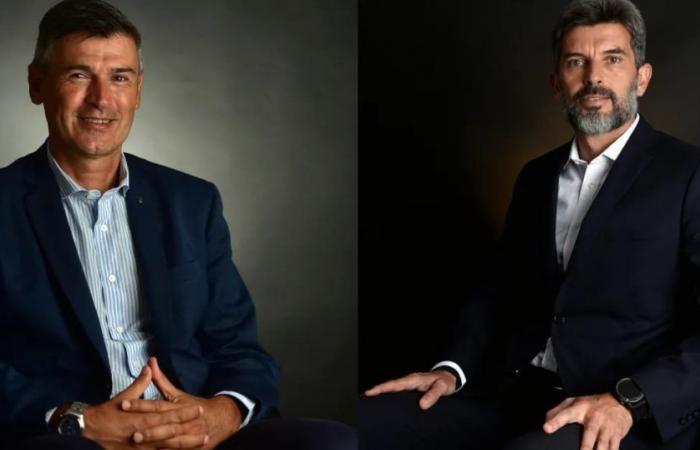The complex political and economic context that the country is going through is not only transversal to all sectors, but is also reconfiguring the demands of citizens and, therefore, public administrations.
There is a remapping of priorities in real time and that will be the focus that will guide a new panel of the “Voices that add” cycle, which aims to rethink cities based on that trigger, but without losing sight of the need to consolidate economic environments, social and environmental that is sustainable.
In the dialogue, which will be broadcast via streaming On Tuesday, April 30, at 12, the mayors of Córdoba, Daniel Passerini, and of Mendoza, Ulpiano Suarez, will participate.
The transmission can be followed by the platforms of The voiceof The Andes and of Via Countryin addition to the profile on YouTube.
The panel will be moderated by the journalist Daniel Alonso, coordinator of the series that has the executive production of Sebastián Gilli and the collaboration of Marcela Rosatti.
In addition to the emerging agenda imposed by the situation, the hand in hand meeting will serve to delve deeper into the visions of the mayors and the type of transformation they aspire to consolidate in the cities they manage.
Passerini and Suarez have been actively participating in a network of mayors that seeks to unify discourses and dialogue strategies with the national government, with the focus on how to finance the provision of sensitive public services and works, in the midst of the abrupt cut of items that were previously drained by shipments or went to compensating funds to subsidize, for example, the price of public transportation tickets.
This issue becomes more relevant in large urban centers, since metropolitan areas are experiencing the same consequences with interurban buses.
And all this occurs in the midst of tariff updates that still have some way to go, with salaries that have lagged behind the relative prices of the economy.
Weeks ago, there was a summit of mayors in Córdoba, within the framework of a call promoted by the Local Innovation Network. In that meeting, lines of action were drawn up that will be considered again in the coming days, in a similar meeting that will take place in Rosario.
In recent years, problems such as security have been added to the traditional agenda of the mayors – they must complement provincial and national strategies – and the need to contribute to social containment in the face of a context of growing poverty. It is not only about implementing assistance policies, but also about preventing urban fragmentation from reaching points of difficult return.
However, emergencies should not prevent cities from continuing to plan to promote sustainable transformations.
At this point, hybrid management spaces are usually housed, in which short-term tactics coexist with medium- and long-term strategies.
Cities have embraced new aspirations linked to basic services, such as waste management, crossed by the scope of the circular economy and, even more so, by regenerative approaches.
Sustainability is part of the agenda of the smart cities that – experts insist – must look for solutions in green infrastructure, friendly to the environment, and in alternatives that contain, for example, the impact of climate change on daily life.
In fact, the concept of “circular city” is already mentioned as an evolution of that of “smart city”, since it involves sustainable development that includes environmental quality and sustainability, prosperity and economic competitiveness, and equality and social inclusion.
At the regional level, organizations such as the CAF (Economic Development Bank for Latin America and the Caribbean) stimulate the concept of “biodivercities” as a transversal element in management.
The scope is broad and multiple, to the point that it spills over into the use of public spaces and urban planning, in addition to the transformation of depressed areas, as is the case with the majority of urban microcenters, which in the last century concentrated, in exclusively, almost all the most important commercial, cultural and service offerings.
Other concepts also creep in here, such as mobility management, “15-minute cities” (implies solving the needs and demands in a given space with that amount of time spent traveling) and the contribution of new technologies (intelligence artificial and data science, among other tools) to make the provision and use of services more efficient.
Who is it. The mayors of Córdoba, Daniel Passerini, and of Mendoza, Ulpiano Suarez, will participate in the panel.
Issue. On Tuesday, April 30, at 12, broadcast via streaming through the platforms of The voiceof The Andes and of Via Countryin addition to YouTube.
Support. The activity has the support of Naranja X, Grupo Sancor Seguros, Agencia Córdoba Turismo, Edisur, Municipality of Córdoba, Turismo Mendoza and Epec.






